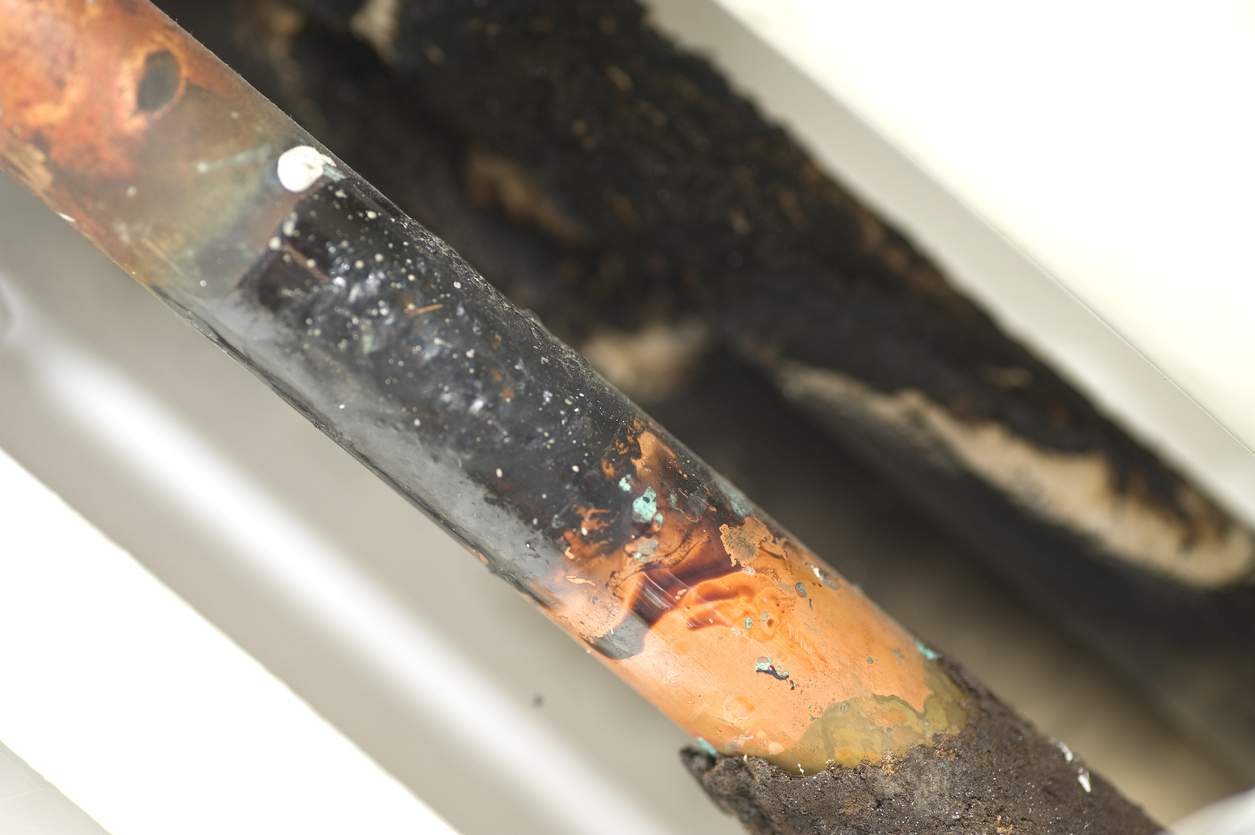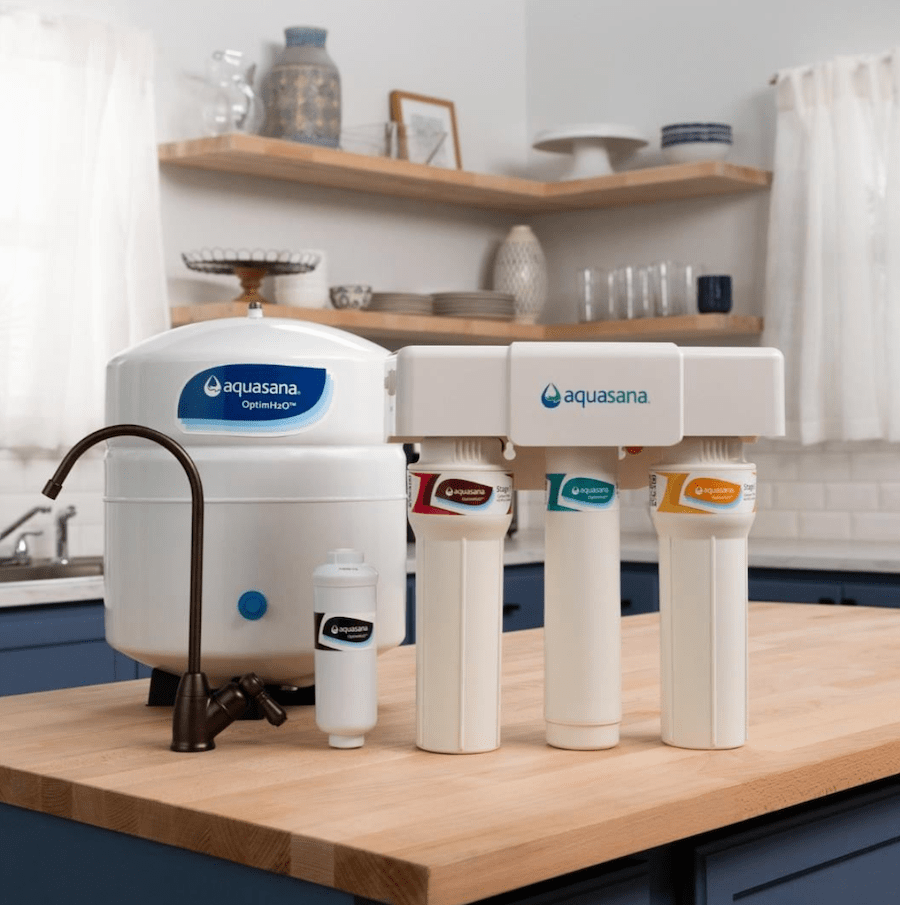We can all agree that drinking water is a good thing. Your body needs water to perform daily functions like keeping your organs and cells regulated, as well as helping with digestion and transporting nutrients. Most of us most likely take additional daily supplements, such as vitamins, to make sure our bodies are working properly. Vitamins and minerals keep our bodies functioning, but did you know you can get minerals from your tap water? While there are minerals in water that are good for you, there are also some that are not so great. We’re here to educate you on the good and the bad minerals and learn more about how minerals get into your water in the first place.
Minerals
Before we dive into specific minerals found in your water and the health benefits, let’s start with explaining minerals. Minerals are inorganic elements or substances that come from the earth. Minerals differ from vitamins in that vitamins are organic elements or substances that must be made by plants or animals. Your body needs minerals to grow and stay healthy. They help boost your immune system, support growth and body development, and assist your organs and cells.
How do Minerals Get in Water?
Which minerals are found in drinking water is dependent on where that water lands on the earth. When rain or snow falls, that water does not contain any minerals. But, when it rains, water lands on various surfaces. These include the ground and soil, creeks, rivers, ponds, and lakes. When water lands on flat, porous ground, the water will seep into the soil, making its way to an underground aquifer. Along the way, the water will come in contact with rocks and more earth, otherwise known as ground water. Surface water, which is water that collects in bodies of water, will not travel underground through an aquifer before reaching your home, thus remaining on the “surface.” When it comes to specific minerals in water and how much, that will depend on the geology of the area.
Ground water will have a much higher concentration of minerals because the water slowly travels through the ground, sometimes even through small crevices in rocks. Because surface water has more limited contact with the ground, it will have a lower concentration of minerals. In areas in the Midwest, the water comes in contact with more limestone. The Northwest has more granite and basalt. What kind of rock your drinking water comes in contact with will determine what minerals may be found in the water.
What kind of rock your drinking water comes in contact with will determine what minerals may be found in your water.”
Minerals in your water
When it comes to minerals in your tap water, the main concern is your health. While there are health benefits to drinking water with minerals, it depends on the types and amount. Water that contains calcium helps build and maintain strong bones. Water that contains magnesium helps keep your heart rate normal and aids in muscle contraction. Sodium can help with nerve and muscle function.
Other minerals, such as lead and arsenic, are not so great for your health.  Lead can enter your drinking water from older plumbing. In homes with lead water pipes, this
harmful contaminant can leak into your water
and is especially toxic for young children. Even if your home doesn’t utilize
lead pipes, you could still be exposed from lead that gets picked up through one of the six
million lead service lines in the United
States. In fact, nearly one third of U.S. water systems reported service lines
containing lead. Arsenic, on the other hand, can contaminate water naturally
from deposits in the earth or from industrial and agricultural pollution. A
chemical used to preserve wood and kill insects from crops, this contaminant
is not something you want to find in your tap water.
Lead can enter your drinking water from older plumbing. In homes with lead water pipes, this
harmful contaminant can leak into your water
and is especially toxic for young children. Even if your home doesn’t utilize
lead pipes, you could still be exposed from lead that gets picked up through one of the six
million lead service lines in the United
States. In fact, nearly one third of U.S. water systems reported service lines
containing lead. Arsenic, on the other hand, can contaminate water naturally
from deposits in the earth or from industrial and agricultural pollution. A
chemical used to preserve wood and kill insects from crops, this contaminant
is not something you want to find in your tap water.
Since each water supply will vary in the type of minerals and the concentration, it’s best to not rely on your drinking water for your full recommended daily intake of the good minerals. Make sure to round out your diet with mineral rich food and dietary supplements. But, back to those unhealthy minerals. We have a solution to removing those, while retaining the healthy ones.
reverse osmosis 
The Aquasana OptimH2O® Reverse Osmosis + Claryum® combines expert filtration technology with reverse osmosis to effectively remove harmful, unwanted contaminants, while leaving you with the healthy minerals. Most reverse osmosis systems strip away the healthy minerals during the filtration process, but our system utilizes a remineralization filter to restore healthy minerals like calcium, magnesium, and potassium. The end result effectively removes more than 95% of fluoride plus 87 additional contaminants and puts back healthy minerals for optimal drinking water.
Transform your tap water into healthy, great-tasting water with all the minerals you want and less of the ones you don’t want today.
